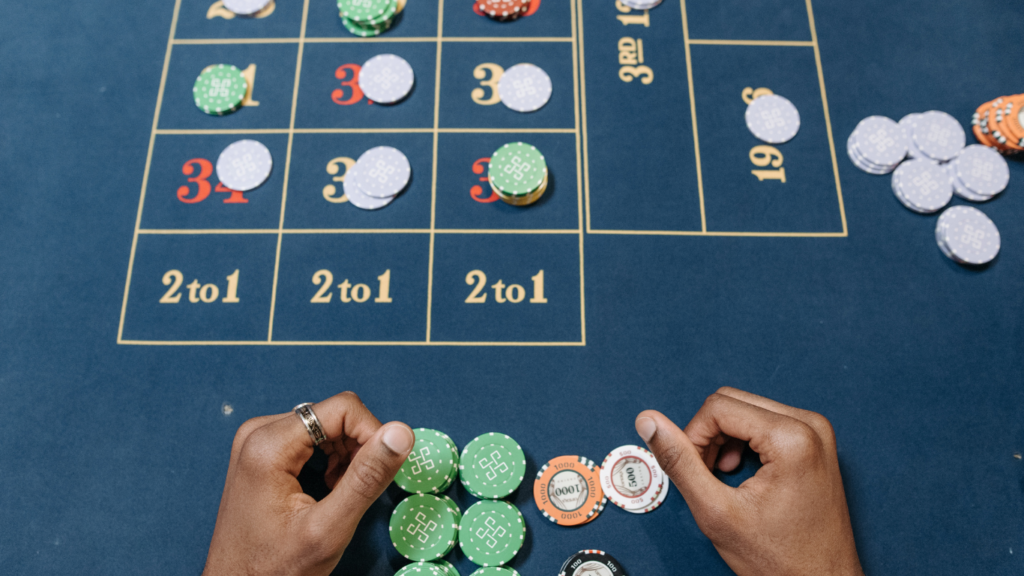The Psychology Behind Betting
Gambling decisions are deeply influenced by psychological factors. Understanding these underlying elements can enhance betting strategies.
Cognitive Biases and Decision-Making
Cognitive biases significantly impact how individuals make decisions while gambling. One common bias is the gambler’s fallacy, which is the mistaken belief that past random events influence future outcomes; for example, thinking a coin flip has to land on heads after several tails.
Another prevalent bias is overconfidence, where individuals overestimate their knowledge or abilities, which can lead to riskier bets without proper analysis. Anchoring, the reliance on the first piece of information encountered, also affects betting choices, such as sticking to initial betting figures despite new information indicating a change might be wiser.
The Role of Emotions
Emotions play a crucial role in how bets are placed and affect decision-making. Excitement can cause a rush that leads to more impulsive bets.
Anger or frustration from losing may result in ’tilt,’ where further poor decisions are made in an attempt to recover losses. Conversely, fear can make individuals overly cautious, preventing them from placing advantageous bets. Awareness of emotional states allows gamblers to manage impulses and stay grounded, aiding in more strategic and rational betting choices.
Strategies for Smarter Betting

Success in gambling depends on adopting well-thought strategies. I focus on refining my approach by assessing data and controlling impulses.
Analyzing Odds and Predictions
Understanding odds is crucial to making informed bets. I start by researching the probabilities associated with different outcomes. A deeper analysis of historical data and trends helps me predict events accurately. External sources, like:
- expert analyses
- statistical tools
guide these evaluations, enhancing decision-making accuracy. Confidence in predictions stems from thorough evaluation rather than reliance on gut feelings.
Managing Risk and Expectations
- Effective risk management protects my bankroll and maintains a balanced mindset.
- I set strict limits on potential losses, ensuring they’re within comfortable bounds to avoid detrimental impacts on finances.
- Realistic expectations prevent emotional reactions and promote patience in gambling.
- Maintaining a disciplined approach, even amid fluctuations, reduces stress and sustains a steady course over time.
- Acknowledging that losses occur and focusing on long-term goals reinforce strength and resilience.
Common Gambling Mistakes
Understanding gambling psychology reveals common pitfalls that can derail even the most seasoned bettors. Awareness of these mistakes helps foster smarter betting strategies.
Overconfidence and Chasing Losses
Overconfidence skews judgment by inflating perceived knowledge or skill. Some players, convinced of their invincibility, place increasingly risky bets. This behavior can lead directly to chasing losses.
When bets don’t yield the desired outcome, some gamblers double down, convinced they’ll recover. This emotional response often exacerbates losses rather than recouping them. It’s crucial to maintain a level head and recognize that overconfidence clouds rational decision-making.
Misunderstanding Probability
Misjudging probabilities leads to poor betting decisions. Many gamblers fall victim to the gambler’s fallacy, believing that past outcomes influence future events in games of chance.
For example, assuming a red will follow a series of blacks in roulette doesn’t align with how odds function. Each spin stands independent of previous ones. Understanding true probability helps dispel myths around certainty and prevents misguided bets based on perceived patterns rather than statistical realities.

 Christopher Walkerashed, the founder of Wild Gamble Greed, is a trailblazer in the high-stakes gambling industry. With a passion for the excitement of big bets, he created a platform that caters to seasoned players, offering expert insights into high-stakes sports betting, poker, and slot machines with massive payouts. Walkerashed is equally committed to promoting responsible gambling, ensuring players have the tools to balance ambition with control. Through his innovative vision, Wild Gamble Greed has become a premier destination for high-rollers seeking to gamble smartly and responsibly.
Christopher Walkerashed, the founder of Wild Gamble Greed, is a trailblazer in the high-stakes gambling industry. With a passion for the excitement of big bets, he created a platform that caters to seasoned players, offering expert insights into high-stakes sports betting, poker, and slot machines with massive payouts. Walkerashed is equally committed to promoting responsible gambling, ensuring players have the tools to balance ambition with control. Through his innovative vision, Wild Gamble Greed has become a premier destination for high-rollers seeking to gamble smartly and responsibly.